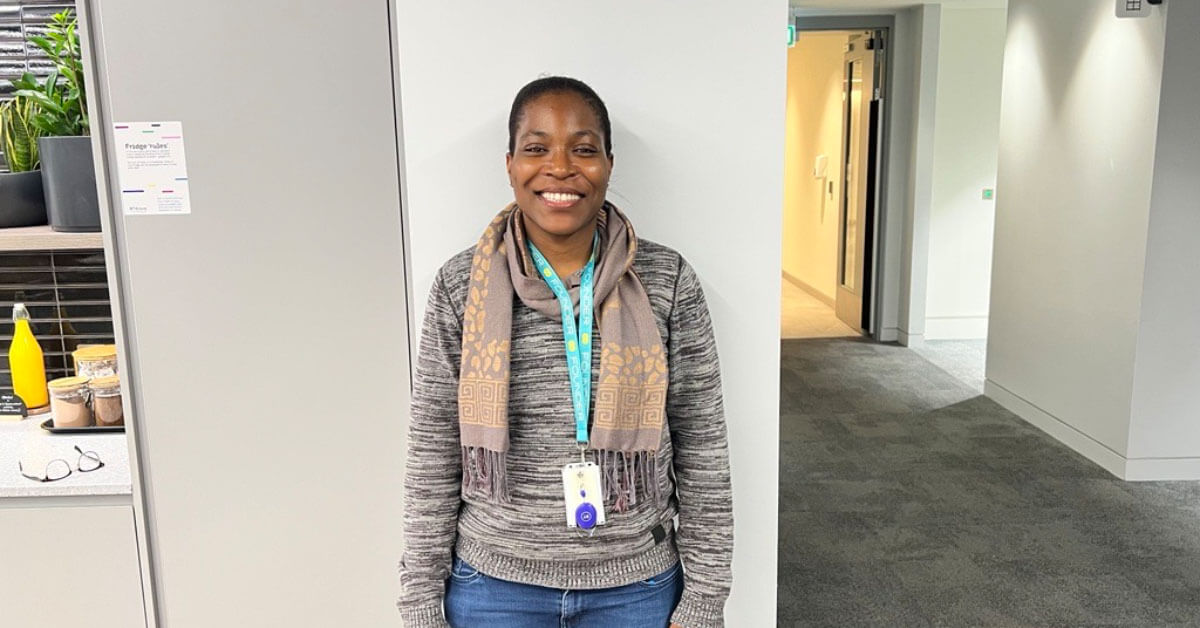As a chapter lead in our Transformation and Delivery team, Aima is supporting the delivery of high profile and complex programmes. She gives us some insight into how she got into the Digital space and what transferable skills she’s used from the army to succeed in her role today.

Can you tell us about your time with the army and why you chose to switch careers?
Wow, I can’t believe how long ago it’s been, I do catch myself thinking about my time quite often. I joined in February 2009, out of university and joined the Royal Electrical and Mechanical Engineers (REME) as a Vehicle Mechanic Engineer (this was my trade). I spent fourteen weeks at the Army Training Centre Pirbright, learning the basics about being a soldier (fitness training, field craft, tours in Belgium, France, Germany) and developing individual and team skills. This is commonly known as Phase 1 Training.
On completion of Phase 1 training everyone is sent to their respective core training school. For me it was the School of Electrical and Mechanical Engineers (SEME) at Bordon. I spent ten months learning and specialising in my trade. Once I had completed all my trade training, I was now classed as ready to join a unit where I would begin my journey in what we always referred to as the real army. In April of 2010 I joined the Light Aid Detachment (LAD) of one Logistic support Regiment (LSR).
The Light Aid Detachment comprises of the Vehicle Mechanic Engineer squadrons of about 30 REME soldiers, including all ranks (Commanding officer down to the soldiers) and our role was to keep all vehicles in top condition for the regiment. I spent over two years with my LAD; deployed on various field exercises to Canada, Germany and an operational tour to Afghanistan where I took on a different role as part of the Female Engagement Team (FET).
I enjoyed my time in the army and given the same circumstances, I would do it all again. Coming back from Afghanistan my relationship with my now husband grew, we knew being in the army was not what we wanted for the rest of our lives. We both knew what we wanted and made the decision to leave. It was scary and I didn’t know what to expect.
What has been the biggest learning curve from working in the army to a business like BT Group?
In the army you’re always being told what to do, where to be and that doesn’t really change as you climb up the ranks. However, in a business like this if you want to achieve something, you’re going to have to not only work for it, but you’re going to have to do the groundwork yourself, being very proactive was the biggest learning curve for me.
What transferable skills did you bring to your current role?
There are a few to be honest which I have approached every situation with. I didn’t fully understand what people meant about transferable skills and I always struggled to translate that in civvy street (civilisation) at the beginning. However, you don’t realise how much you learn and how automatic it becomes as it is now second nature. A few that have helped me through my career in BT Group and all my roles are being adaptable, resilient, teamwork, discipline these you might say are “easy”, but these skills have taught me a lot. I believe if you live by these, everything else is easy to pick up and learn along the way. No challenge feels too big, and you take everything in your stride.
Can you talk to us about your day-to-day role as a Chapter Lead, Delivery Manager?
I’m a newly appointed chapter lead within the Transformation and Delivery team. I’m also a delivery lead, supporting in the delivery of high profile and complex programmes. As a chapter lead my responsibility to my chapter is to ensure they are supported and create the right environment for everyone to feel valued. I’m part of a team that’s transforming the way we work, finding innovative ways to deliver for our customers and being fearless in our approach.

